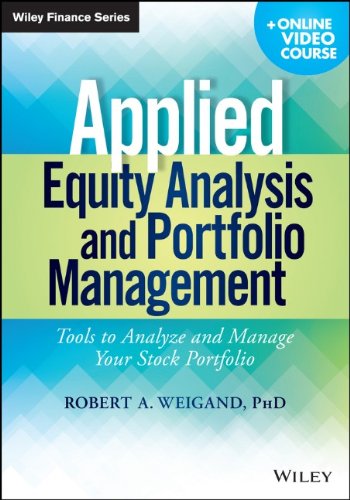
Brenneman Professor of Business Strategy at Washburn University
Contributor's Links:
Financial Market Commentary Washburn University Scholarly Papers Book: Applied Equity Analysis and Portfolio Management
Robert A. Weigand, Ph.D., is principle partner of Financial Analytics, LLC. Dr. Weigand has also been a faculty member at Texas A&M University, the University of Colorado, and the University of South Florida. As the author of over 45 ...more
Robert A. Weigand, Ph.D., is principle partner of Financial Analytics, LLC. Dr. Weigand has also been a faculty member at Texas A&M University, the University of Colorado, and the University of South Florida. As the author of over 45 scholarly articles and book chapters, Dr. Weigand’s research has supported a variety of innovations in asset management, including Russell Investment’s CrossVol(TM) Volatility Indexes. He is also the author of Applied Equity Analysis and Portfolio Management, John Wiley & Sons, 2014. Dr. Weigand serves on the Harvard Business Review Advisory Council and as a Panel Member for McKinsey Quarterly. His blog, Financial Market Commentary, is syndicated by financial media outlets such as Wall St. Cheat Sheet, and has been recognized by Bisk Education’s CPA Review as a Top Accounting Education Resource and by Future Advisor as a Top Unbiased Blog.less



